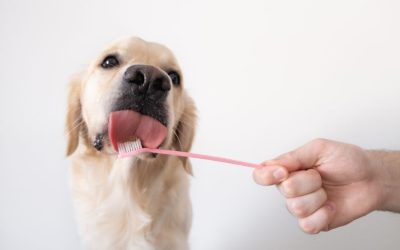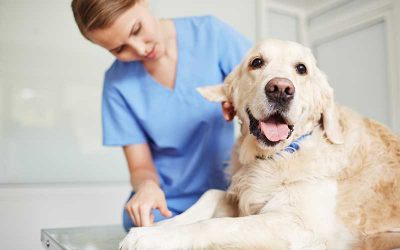Anxiety can be a challenging behaviour to fix for dogs. What is anxiety? How to spot it? In this blog, we’ll talk about dog anxiety and everything you need to know. Remember, feelings of anxiety don’t come from anything, and it is best to catch the things that might be making your dog anxious. Prevention is the best route, but there are effective methods of treatment that can fix your dog’s anxiety over time. Here are some things you should know about dog anxiety.
Causes and Types of Dog Anxiety
There are different kinds of anxiety that your dog can experience. Types of anxiety include: separation anxiety, generalized anxiety, environmental anxiety, and social anxiety. Each of these kinds of fears has its specific triggers. The most common anxiety we hear of is separation anxiety. This is caused when our dogs are not used to being left alone without their human. They form an attachment, and when they are away from their humans, they get anxious. Environmental and social anxieties occur from our dogs being in uncertain situations. Whether it’s an unfamiliar environment making your dog nervous or unknown people, knowing what triggers their anxiety can help you find the proper treatment. Sometimes, stress can come from more than one factor, and in this case, it is known as generalized anxiety. Understanding the causes of your dog’s anxiety can help diagnose the right type and find the right plan of action.
Signs of Anxiety in Dogs
Dogs show various expressions and behaviours when they are anxious. Some of these expressions include aggression, excessive barking, excessive licking or chewing on themselves, or destructive behaviour as a means of defence in their uncertainty. Other signs of anxiety are: panting, drooling, pacing, and restlessness in given situations. Repetitive behaviours like urinating and going to the bathroom in the house can also indicate anxiety. Your dog should feel comfortable and at ease in any situation. If you aren’t sure about the behaviour your dog is exhibiting, please get in touch with your veterinarian, and they can help you determine what’s going on.
Treatment of Dog Anxiety
Depending on your dog and their type of anxiety, a variety of treatments may be helpful to them. The good news is that there are many options for treatment. Every dog is different, so you might find yourself trying a couple of different methods to help. Sometimes, things like exercising your dog can help calm them down to feel relaxed and at ease the rest of the day. Other things like massages or physical contact like cuddling may reassure your dog to be at ease. If your dog has a more complex form of anxiety, visiting a behavioural therapist may be the best route. They can help design a specific plan to help you treat your dog. Other forms of professional treatment are anxiety medications, but your veterinarian should consult and prescribe these options.
How to Prevent Dog Anxiety
Preventing dog anxiety is the best course of action. By noticing your dog’s trigger early on, you can help your dog change their perception of what is causing them to react. These factors can vary depending on their anxiety. For separation anxiety, the trigger is their human leaving home. The trigger for environmental and social anxiety can be an unfamiliar place, a place with an unfavourable memory (like the vet), or being around big dogs or loud people that have scared them before. Gradually exposing and rewarding your dog can help associate these triggers as fun and happy situations. For generalized anxieties, prevention can depend on what their trigger is. Whatever may be causing an irregular reaction in your dog, it is crucial first to identify it and help your dog work through their fear and uncertainty in a gradual and friendly manner.
There’s a lot to know when it comes to anxiety. It is not just an occasional feeling of unrest and is more complex than that. We hope this blog on dog anxiety has everything you need to know. Remember to always consult your veterinarian and professionals on the best therapy for your dog’s anxiety. This advice can help your dog live a happier and healthier life. Don’t forget to follow and like us on our social media pages for more content.






Recent Comments